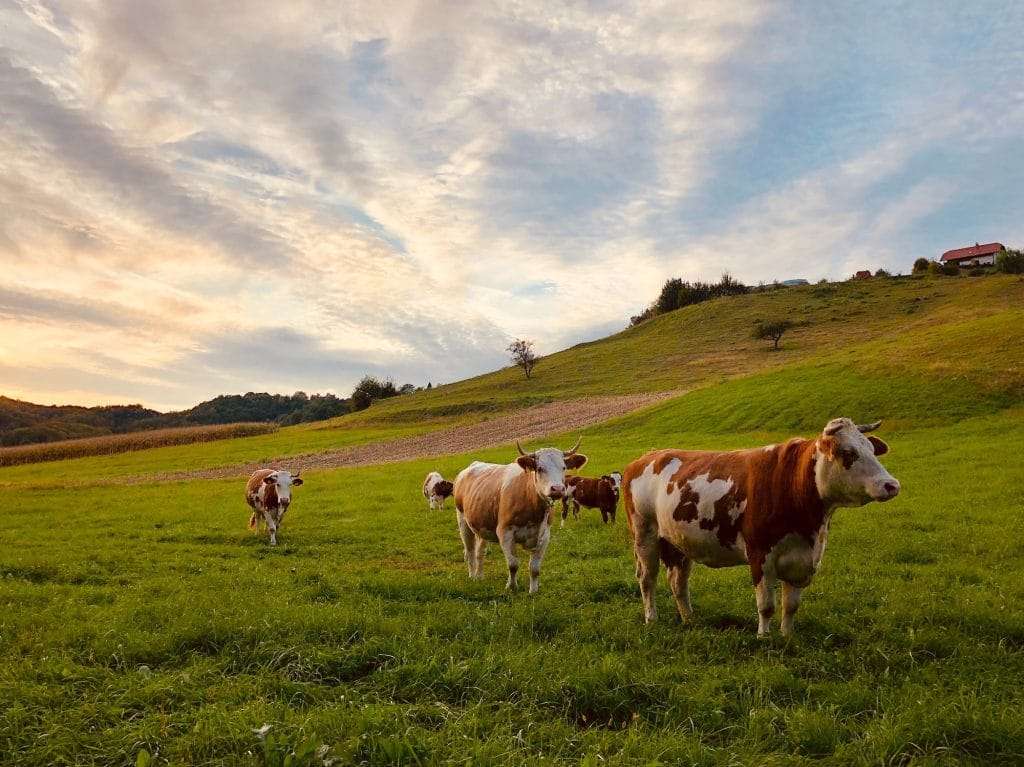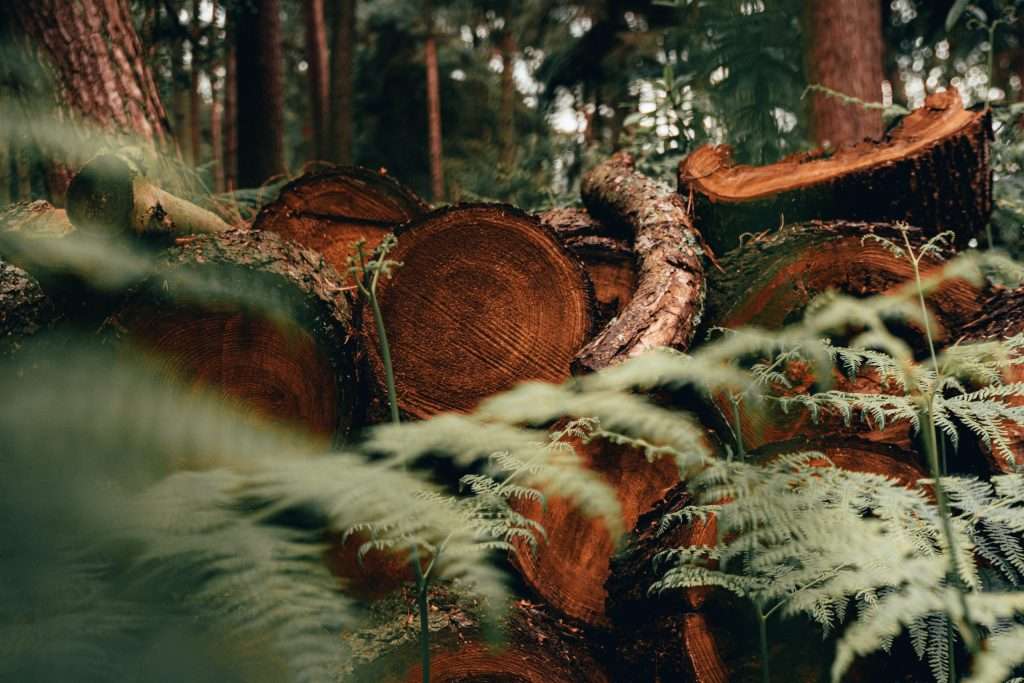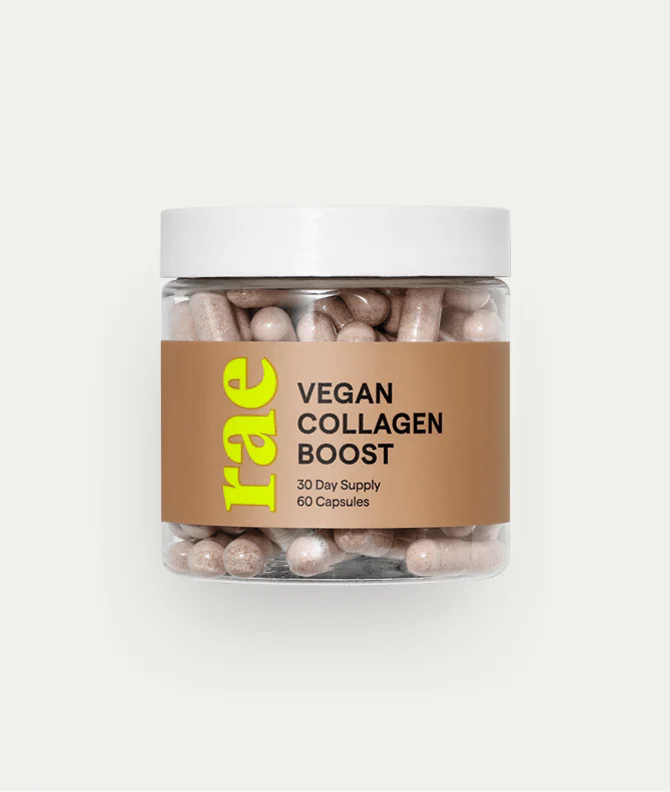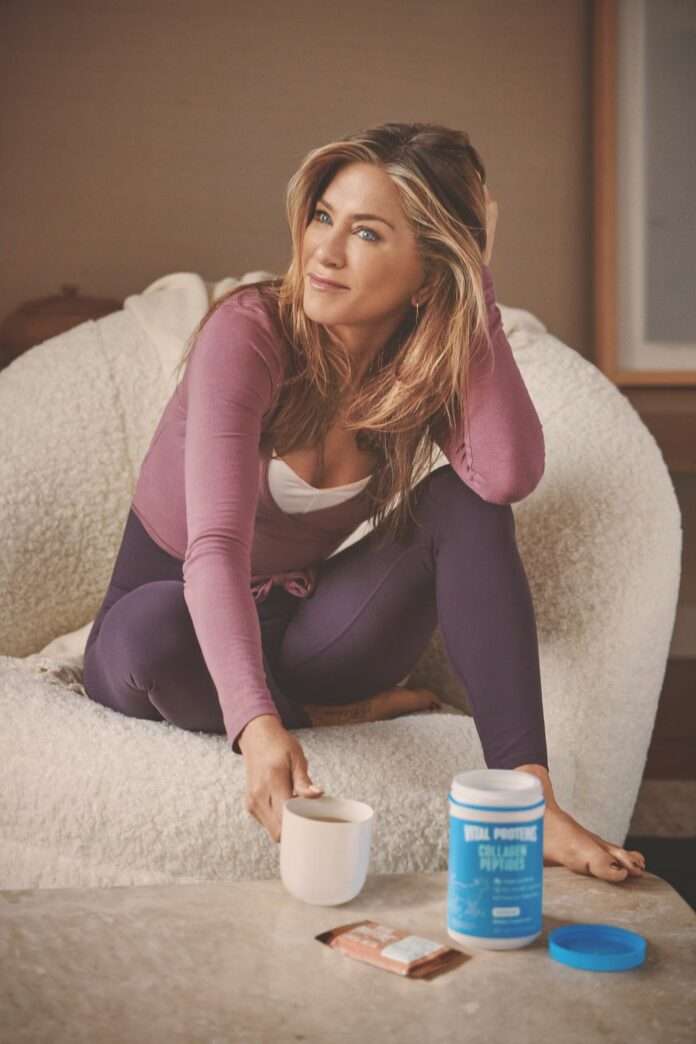Questions about collagen’s skin-boosting benefits have been around as long as the devotees who swear by the stuff. But with its ties to deforestation, the booming collagen industry warrants a deeper look.
Collagen has been all the rage for a while now. It’s in skincare creams, it’s in dietary supplements, and there is even such a thing as collagen tea. By consuming the protein, many people hope that their skin will become more supple and moist, their bone health will improve, and any joint pain will subside.
But, it turns out, this major beauty and wellness trend — lauded by celebrities like Jennifer Aniston, Gwyneth Paltrow, and Kim Kardashian — comes with an ugly price. No, we’re not talking about the $50 price tag for a jar. We’re talking about the destruction of the world’s largest tropical rainforest.
But how, exactly, is collagen linked to major deforestation? And is there any way we can enjoy its benefits without hurting the planet? Let’s dive in.
The link between collagen and deforestation
To understand how collagen and deforestation are interlinked, first, it’s important to understand exactly what collagen is. It’s not a synthetic wonder ingredient created in a lab or a natural plant extract, but a protein derived from animals. While it can come from fish and pigs, for the most part, it comes from cows.
According to Global Market Insights, which estimates that the collagen market is worth more than $4 billion, bovine collagen is “extensively utilized in the cosmetics industry.” This means that its production is intrinsically linked to cattle farming, which — as we know from existing research into the beef and leather industries — is linked with major deforestation.

In fact, according to WWF, cattle ranching accounts for around 80 percent of deforestation in the Amazon rainforest. This isn’t just catastrophic for wildlife and biodiversity, but it’s also driving up emissions. This is because, when trees are cut down, they release all of the carbon they have sequestered back into the atmosphere. Then they are replaced with cows, which are huge emitters. (Over the course of just one year, one cow alone will belch around 220 pounds of methane, a greenhouse gas more potent than carbon dioxide.)
And there’s also a human cost. “In Amazonia, deforestation is killing Indigenous people by destroying the land they depend on for their survival,” explains Survival International. “When their land is stolen, people are forced from their forest homes.”
But not all of this takes place to produce burgers and leather shoes, it’s also fuelling the collagen market.
A recent investigation by the Bureau of Investigative Journalism, ITV, O Joio e O Trigo, and The Guardian examined the extent of the damage of collagen production on the environment. It concluded that “tens of thousands of cattle raised on farms damaging tropical forests were processed at abattoirs connected to international collagen supply chains.” Some of this destruction was linked to Vital Proteins, a leading U.S. collagen brand owned by Nestlé and partnered with Aniston.

The investigation is the first of its kind to focus solely on the link between bovine collagen and deforestation. And, experts are keen to stress, it shows that collagen is not simply a byproduct of the destructive beef industry. It is a growing market that is also actively driving harm to tropical forests.
“The margins for the meat industry are quite narrow, so all of the saleable parts of the animal are built into the business model,” Rick Jacobsen of the Environmental Investigation Agency told the Bureau of Investigative Journalism.
How to support your body’s collagen without hurting the rainforest
Governments are trying to crack down on the trade of products linked with deforestation right now. In the E.U., for example, a groundbreaking deal is set to ban the import of deforestation-linked goods.
But while products like palm oil, soy, coffee, rubber, and beef are named in the legislation, collagen seems to be slipping under the radar. “It’s important to ensure that this type of regulation covers all key products that could be linked to deforestation,” said Jacobsen.
This means that at least until the market is regulated, it might be a good idea for us as consumers to avoid bovine collagen supplements. But this doesn’t mean that we have to skip out on collagen products altogether.

Right now, there are a number of vegan collagen products on the market too. These do not contain collagen, but rather, they claim to help boost the production of the body’s own collagen. (Just like animals, humans have their own collagen, but our production tends to drop as we age, which often results in looser, more wrinkly skin.)
Supplements like this Vegan Collagen Booster from Future Kind+, for example, contain “collagen-boosting nutrients” like vitamin A, zinc, and vitamin E. But even better? They’re totally bovine-free, which means they’re likely deforestation-free too. Because ultimately, experimenting with wellness trends should never cost the rainforest.
Related on Ethos:


